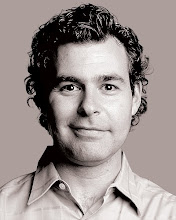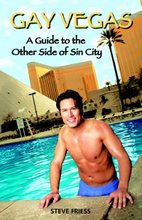 A few weeks ago in this space, I wondered why Las Vegas casinos don't have foreign-language mirror sites. I had noticed shortly thereafter that the Bellagio does, in fact, have Chinese, Japanese and Spanish mirror sites. See the screenshot to your right.
A few weeks ago in this space, I wondered why Las Vegas casinos don't have foreign-language mirror sites. I had noticed shortly thereafter that the Bellagio does, in fact, have Chinese, Japanese and Spanish mirror sites. See the screenshot to your right.Then it was pointed out to me in an email from Jenn Michaels, vice president of corporate relations for MGM Mirage, that two other MGM Mirage properties also have Spanish language sites -- Circus Circus and Treasure Island. I honestly didn't even look at those sites because they're not hotels I would associate with international travel and at least with the TI, you have to really look c
 arefully to find the link. But Michaels also noted that by the end of the year, MGM Grand and Luxor also will have Spanish-language mirror sites. Wroth she: "This is an evolving area for us. Historically, international business has represented a small percentage of business to Las Vegas and to our properties. That number is certainly growing and as it does we respond."
arefully to find the link. But Michaels also noted that by the end of the year, MGM Grand and Luxor also will have Spanish-language mirror sites. Wroth she: "This is an evolving area for us. Historically, international business has represented a small percentage of business to Las Vegas and to our properties. That number is certainly growing and as it does we respond."I asked her what's taken so long given all the marketing efforts in Asia, and this was her answer: "To be honest, it’s just a matter of us catching up to the need. We’ve gone, in 7 years, from being a company with 2 properties to one with 22 properties, and we’re trying to manage that process. We know we have a lot of work to do on this front, and we look forward to getting it all done as we move forward."
Meanwhile, I also picked on the Las Vegas Convention and Visitors Authority for failing in this regard. It is true that LVCVA.Com does not have any foreign-language mirror sites, but VisitLasVegas.Com, which I discovered the other day when Gregory sent me checking out the Vegas Visionary, does have links for Spanish and Chinese.
Still, where's Harrah's, Wynn and especially the Venetian on all of this?
And on a more arcane point (to Western readers), one of my Chinese friends reminded me that the title of the first post on this matter was incorrect. "Bu Yao" means "don't want." I meant to say "don't have" which would've been "mei you." Dui buqi.








0 comments:
Post a Comment